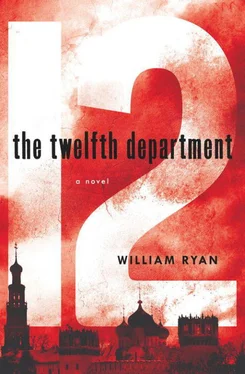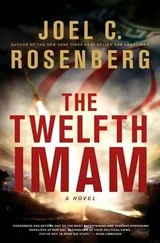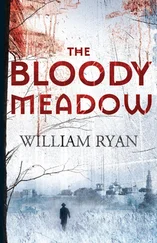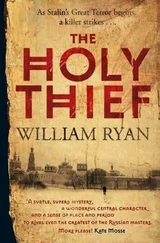His steps were slow as he climbed the stairs to his apartment—not least, because he’d no hope whatsoever that his son would be there waiting for him. It felt as if the very air itself was thick with collective anxiety, and no trace of the joy he’d expect if the boy had returned safe and sound. He wondered what the other inhabitants of the building made of it all—he’d no doubt they’d seen him park the car, watched him cross the road, and now were listening to his footsteps as he climbed the stairs. They’d no doubt seen the two Chekists pull in behind him, as well.
Perhaps they’d already come to the conclusion that whatever was going on with Korolev’s son, it would be best to avoid the Militiaman until the matter had resolved itself, one way or another. He couldn’t blame them. He doubted Lobkovskaya was the only one who knew that Chekists had searched his room. And now he was going to have to tell Valentina what had happened—and he wondered what she might say.
He opened the door to his apartment and walked through to the shared room. Valentina was sitting at the table, Natasha beside her. Lobkovskaya was on the Chesterfield and Shura, Babel’s maid, was beside her. He stopped, looking from face to face, thinking what good fortune it was to have friends such as these—and what a responsibility as well. Valentina, meanwhile, had risen to her feet in one graceful movement. She came to him and wrapped her arms around him and held him close, and Korolev, despite himself, felt tears itching the corners of his eyes.
Somehow he slept. It probably helped that he was tired from the tips of his ears to the soles of his feet but, even so, at first he found himself waking at the slightest sound, wondering if those might be Yuri’s footsteps on the staircase or if the argument down the lane might be something to do with his son.
Eventually sleep took him in its firm grasp and the next thing he knew the early dawn was brightening the window. And then he was on his feet and on the move. He wanted to go to Kievsky station again first thing—if Yuri was in Moscow, he might still be in the neighborhood of the station, and if he went early enough, he wouldn’t be missed from the investigation. And he also wanted to find out if Yasimov had tracked down any of Goldstein’s lairs and what, if anything, he’d found there.
He was just walking out onto the street when he saw them: the Chekists who’d followed him halfway round Moscow for most of the previous day, it seemed. They were standing under a streetlamp, smoking and, as usual, they didn’t avoid his gaze—instead the plump one waved him over. Korolev looked at them, the collar of his shirt suddenly feeling like a noose. He stared, hoping he’d mistaken the gesture, but then it came again, irritated now. The other one tapped his watch, as if to say, “We haven’t all day, Citizen Korolev, we’ve other people to be arresting as well, you know.”
There was no ceremony when he reached them. They didn’t introduce themselves or tell him what they wanted from him—just directed him down the lane, one of them falling in on either side. They didn’t seem that interested in him, if the truth be told—in fact one of them yawned loudly. He wondered whether they’d slept, it didn’t look like it—they were unshaven and his nose told him they both needed a wash. Perhaps they’d been up all night, doing whatever men like them did. It was really nighttime work, their business, after all.
They turned left at the corner, toward the sugar refinery, and Korolev wasn’t surprised to see their car parked farther along the street. There was also another car, however—a brand new ZIS, its chrome gleaming despite the long early morning shadows, a driver leaning against it.
“He wants to talk to you,” the plump goon said and, as he spoke, the driver saw them, walked to the rear door of the car, and opened it.
“Come in, Korolev,” a familiar voice said from the backseat and Korolev recognized it as Colonel Zaitsev’s. It occurred to him that not many citizens had the privilege of so many close encounters with senior Chekists in such a short period of time. He shrugged, took the sort of breath you might take before diving into a cold lake, and found himself squeezing onto what was left of the backseat. It might have helped if Korolev had been a smaller man. Or Colonel Zaitsev, for that matter. As it was, he found himself closer to the Comrade Colonel than was comfortable.
“Close the door, there’s a good fellow, and let me have a look at you.”
The colonel spoke softly, his dark eyes examining Korolev with care. Eventually Zaitsev nodded, as if satisfied with his inspection.
“You look nervous, Korolev, and you’re right to be. I wouldn’t like to be in your shoes. No. Not at all.”
Korolev looked down at the footwear in question, then at the colonel’s boots. He knew the colonel didn’t mean it literally, but all the same—if he’d a choice between the colonel’s boots and his own shoes, then he wouldn’t choose his shoes either. The colonel’s boots looked shapely as a pair of ballet dancers—the highly polished leather almost seeming to glow in the car’s interior.
“Korolev? I’m talking to you.”
“Yes, Comrade Colonel”—Korolev shook his head to clear it—“I hear you.”
Which he did, but he’d been distracted by the fact that, while the colonel’s boots looked as though they’d just been stripped off an imperial hussar, the rest of Zaitsev’s clothes were crumpled and untidy, the buttons on his gymnastiorka undone as if he’d been exerting himself, and the buckle on his Sam Browne belt unfastened, letting his stomach spread out.
“Well then. What have you to say for yourself?”
To Korolev’s surprise he felt an enormous urge to say exactly what he thought of an organization in which one department told him to investigate two murders and another department came along and told him not to. Because he’d no doubt that this was what he was about to be told. But then, suspecting the brown specks on the colonel’s tunic might just be blood, he took a deep breath and reminded himself who he was talking to.
“Comrade Colonel, I always attempt to do my duty to the best of my ability. If this is about the Azarov and Shtange murders, I’ve only ever followed instructions from my superiors. To the best of my ability.”
The colonel snorted. “To the best of your ability?”
“Perhaps my ability is limited, Comrade Colonel. I’ve always tried to recognize my limitations.”
“It’s as well you do, Korolev. You are, after all, a simple detective—isn’t that right? A simple detective who has managed to become involved in matters well beyond his capabilities.”
In not much more than twenty-four hours Korolev had been directly and indirectly threatened by two Chekist colonels, each of whom, he suspected, wanted completely different things from him. Yes, there was no doubt that he’d got in over his head. The colonel was certainly right about that.
“You’ve even managed to lose your son.”
Korolev was momentarily angry, but more than that he was concerned. Did Zaitsev have the boy? The colonel seemed to follow his thoughts because he smiled, apparently satisfied that he had Korolev’s full attention now.
“Korolev, if I wanted to cause you difficulties, we wouldn’t be talking about things in such a comradely way. If I wanted to make life awkward for you, those fellows outside would be having the conversation, not me. And they’re very efficient at what they do, believe me. The big one, Blanter, looks on it as training for the ring. He’s tireless, believe me: punch, punch, punch. All night long. The other one, Svalov, looks softer but don’t be deceived—he’s the more inventive of the two. You can take my word for it, compared to Svalov, Blanter’s the soft one.”
Читать дальше












